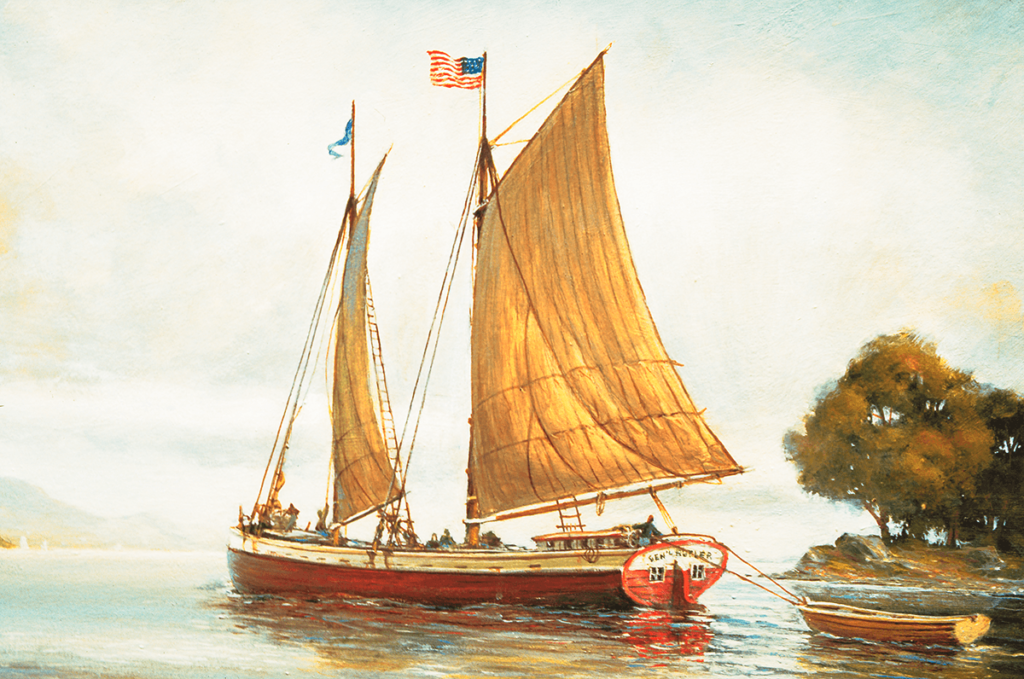In 1823, the Champlain Canal connecting Lake Champlain to the Hudson River was completed. This canal, the sister of the more famous Erie Canal which runs east to west, knit together an already historic north-south transportation route. The lake, which had been a major regional travel route for thousands of years, became an expanding commercial highway after the end of the American Revolution, now virtually exploded with trade.
Along with the traditionally designed sloops, schooners, and the recently invented steamboats, the lake now witnessed the birth of a watercraft new to North America; the sailing-canal boat. The Lake Champlain sailing canal boat was built as an “experiment.” Traditional canal boats, which lacked masts and sails, relied entirely on towboats and mules to move from place to place. Designed as a money-saving alternative, the sailing canal boat aimed to be able to sail from distant lake ports to the canal on the power of the wind alone, thus avoiding towing fees. Upon reaching the canal, the masts were lowered and the centerboard raised. The transformed vessel could enter the narrow canal, where mules took up the lines.
The first editions of the craft, dubbed the “1823” class, were characterized by the randomness of their design, as individual families constructed a hodgepodge of vessels. By 1841 the design had been standardized and the “1841” class were just under 80 feet in length and roughly 13 feet in beam, so that they could fit the locks and canal prisms of that period. By 1862, the expansion of the canal allowed for an expansion of boat design and the “1862” class was developed. This new vessel was roughly 88 feet in length and 14 feet in beam, with a slightly deeper hold for a greater cargo capacity. Two of these 1862 class shipwrecks were studied for the creation of our replica Lois McClure, both located in Burlington Harbor, Vermont. The OJ Walker and General Butler are now part of the Lake Champlain Underwater Historic Preserve System.




